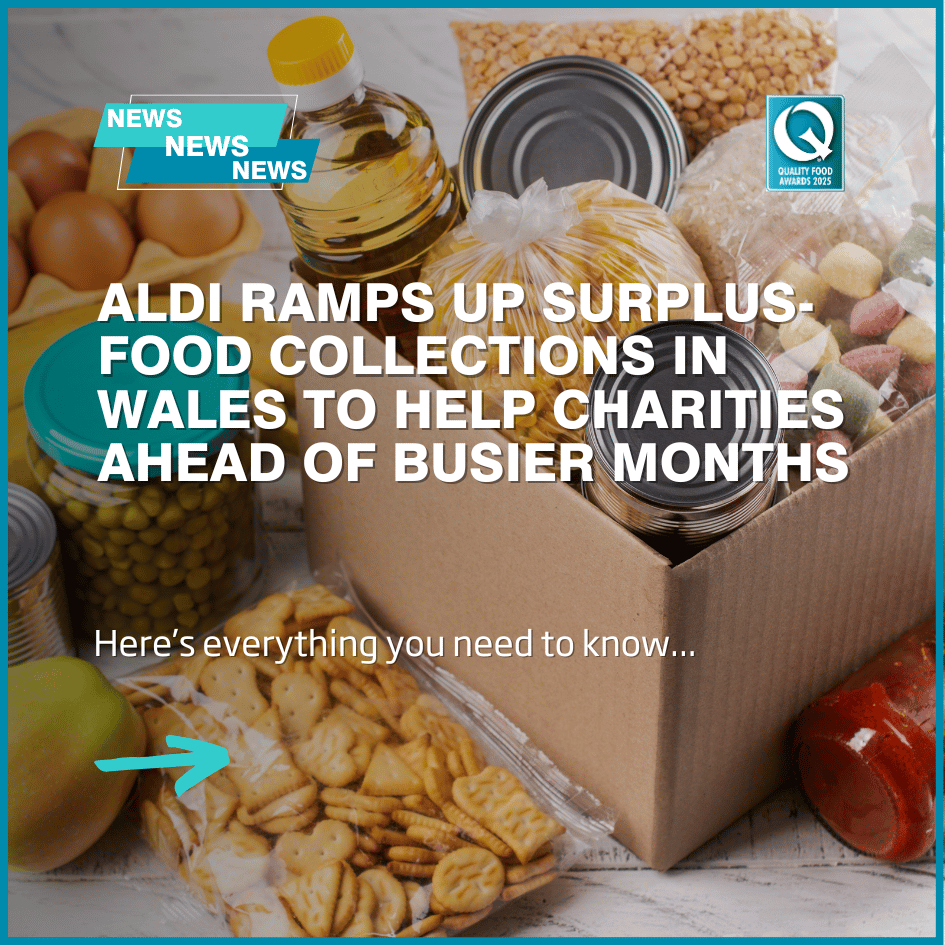
Aldi ramps up surplus-food collections in Wales to help charities ahead of busier months
Aldi has invited Welsh charities, community groups and food banks to register via Neighbourly to collect surplus fresh and chilled items, part of a national programme that has redirected around 40 million meals since 2019 and now includes emergency microgrants and seasonal funds.
Aldi has launched a fresh drive across Wales inviting charities, community groups and food banks to register to collect surplus food through its long‑standing partnership with community giving platform Neighbourly. According to the South Wales Argus, the move is being promoted as a way to redistribute fresh and chilled items that would otherwise go to waste and to help bolster local support as demand typically rises in the coming months. Luke Emery, Aldi UK’s national sustainability director, told the paper the retailer’s food donation scheme helps make “fresh and healthy food” available to those in need while allowing surplus stock to be redistributed; Neighbourly’s chief executive Steve Butterworth described the donations as offering “practical help” to overstretched organisations.
The invitation in Wales sits within a national programme Aldi says has been running since it partnered with Neighbourly: stores are paired with local good causes so charities can collect near‑expiry chilled and fresh produce, bakery items and long‑life goods. Aldi’s corporate information and industry coverage note the scheme operates at store level and is one element of the retailer’s wider efforts to cut food waste and support communities. The company says stores also make provision for breakfast clubs, soup kitchens and other local groups to collect surplus stock on an ongoing basis.
Aldi and Neighbourly point to substantial scale. The retailer has said it has donated tens of millions of meals through the partnership since 2019, and trade reporting places that figure at around 40 million meals to date. In Wales specifically, Aldi reported arranging thousands of festive‑period distributions—one account put the retailer’s Christmas and New Year donations in Wales at just under 100,000 meals—illustrating how the programme is used to meet short‑term spikes in need as well as everyday demand.
The surplus collection drive is only one strand of support. Neighbourly recently announced a new Spring fund, launched with Aldi, to issue emergency microgrants of £500 to smaller charities and community projects such as baby banks and children’s centres facing sustained pressure from cost‑of‑living rises. Separately, reporting in Wales highlighted Aldi’s Emergency Winter Foodbank Fund — a £250,000 initiative intended to help charities prepare for peak demand, alongside in‑store campaigns that signpost most‑needed items and provide customer donation points at checkouts.
On the ground, charities registering through Neighbourly are paired with nearby stores and given practical guidance about collection times and the kinds of items typically available. Aldi states its stores donate seven days a week in many areas and that donations are matched with local need; in Wales this has included coordination with community groups and, at a distribution centre level, parallel redistribution via partners such as Company Shop Group to get surplus stock to community shops and kitchens. Local campaigns also advise customers which staple items are most useful for foodbanks, while encouraging both corporate and grassroots responses.
Taken together, the initiatives reflect an attempt to address two linked problems: the persistence of food insecurity and the environmental and economic cost of avoidable food waste. Neighbourly’s own research, cited alongside the fund announcement, points to rising demand on local services; Aldi frames its surplus redistribution as a practical, store‑level response to that pressure. Charities in Wales that want to participate are being urged to register through Neighbourly ahead of the busier seasonal months so they can be paired with local stores.
